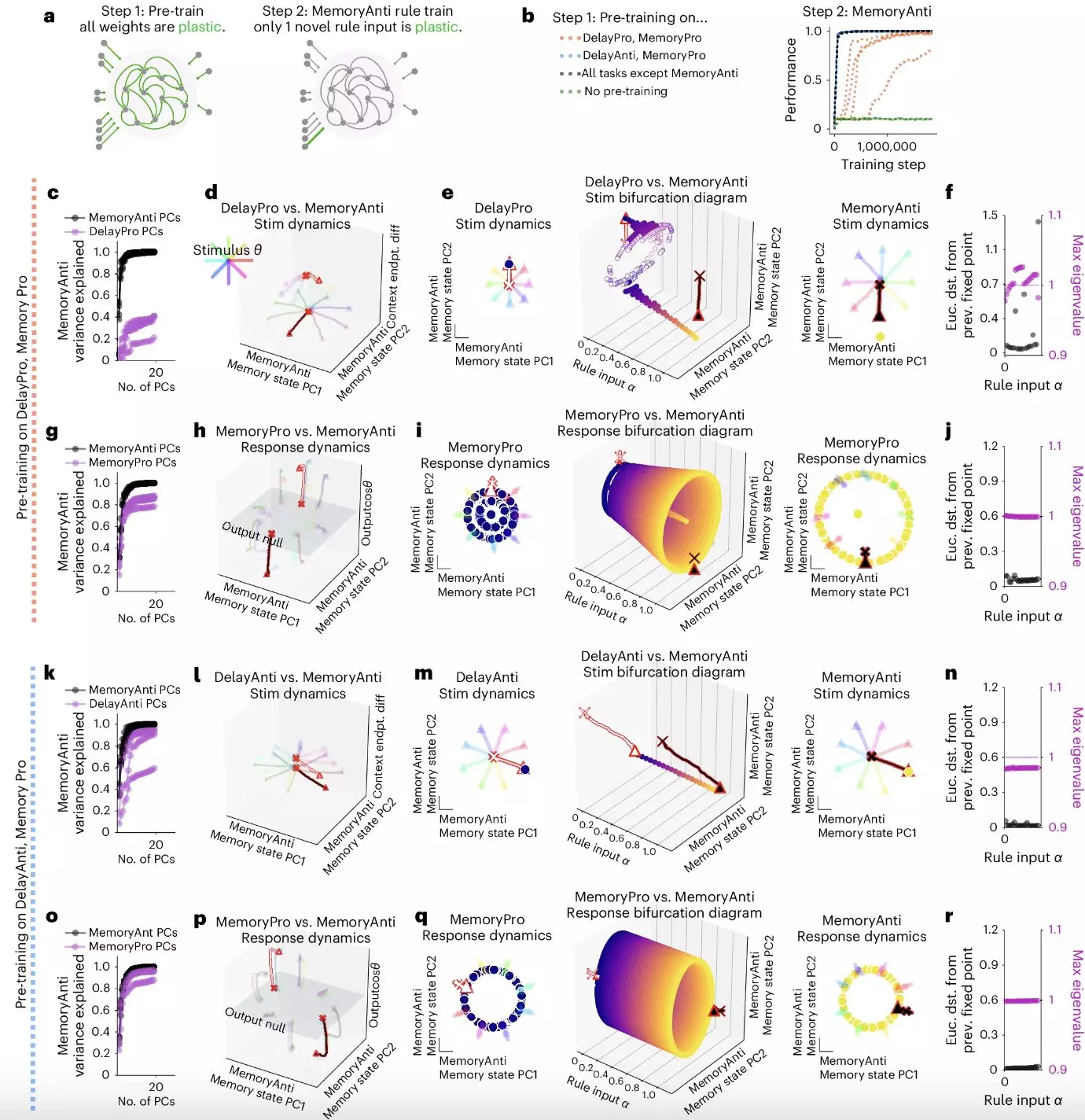Cognitive flexibility is a crucial human ability that enables individuals to quickly adapt to new situations, learn new skills, and switch between different tasks. While artificial intelligence (AI) systems have made significant advancements in recent years, they still lack the same level of flexibility as humans. Understanding how biological neural circuits support cognitive flexibility can provide valuable insights for developing more flexible AI systems.
A recent study conducted by researchers from New York University, Columbia University, and Stanford University focused on training a single neural network to perform 20 related tasks. This study aimed to investigate the mechanisms underlying the computations of recurrently connected artificial neural networks and identify a computational substrate that enables modular computations, referred to as “dynamical motifs.”
The researchers discovered that dynamical motifs, which are recurring patterns of neural activity that implement specific computations through dynamics, play a crucial role in the ability of convolutional neural networks to perform modular computations. These motifs were found to be essential for fast transfer learning and were reused across tasks to support different types of computations.
The findings of this study have significant implications for both neuroscience and computer science research. By identifying dynamical motifs as a fundamental unit of compositional computation in neural networks, researchers can gain a better understanding of how these networks process information and adapt to different tasks. This knowledge could lead to the development of more flexible AI systems that can better emulate human cognitive flexibility.
Cognitive flexibility is a crucial aspect of human intelligence that is currently lacking in artificial neural networks. By studying the mechanisms underlying cognitive flexibility in biological neural circuits, researchers can develop new strategies to improve the flexibility and adaptability of AI systems. The findings of recent studies, such as the one conducted by Driscoll, Shenoy, and Sussillo, are a step forward in understanding the neural processes that underpin cognitive flexibility and can pave the way for future advancements in AI research.


Leave a Reply
You must be logged in to post a comment.